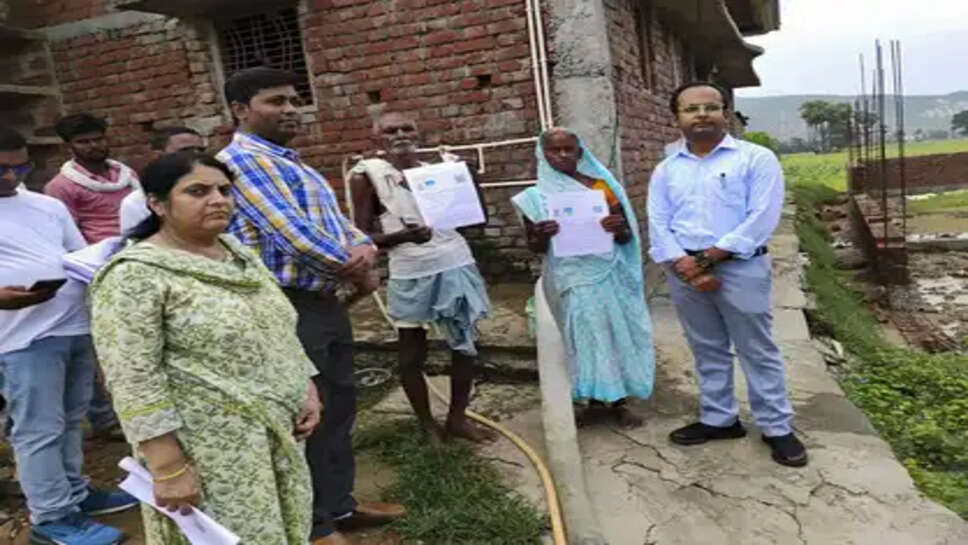Voter List Overhaul in Bihar: Draft Rolls Set to Lose 65 Lakh Names

The first phase of Bihar’s Special Summary Revision (SIR) has officially concluded, and preliminary reports suggest a massive purge of names from the state’s draft electoral rolls. According to state election officials, around 65 lakh voter names are expected to be removed due to duplication, death, migration, or inaccuracies. This massive rectification drive is part of an ongoing effort to clean and modernize the electoral database ahead of the 2025 Bihar Assembly elections and the upcoming local body polls.
A Large-Scale Exercise for Electoral Integrity
The SIR is conducted periodically to ensure the accuracy of the voter rolls. In Bihar, the need for a rigorous review became even more pressing after discrepancies in voter data were reported during recent elections. Issues ranged from duplication of names across districts to outdated entries, deceased individuals still listed as active voters, and a high volume of unverified mobile numbers.
Phase 1 of the SIR was focused on field verification and door-to-door surveys. Booth Level Officers (BLOs) visited homes across the state to verify the identity and presence of listed voters. According to the Election Commission of Bihar, over 8 crore voter records were cross-verified during this drive.
The identification of 65 lakh potentially ineligible voters is the result of this meticulous process. These names will not be immediately deleted. Instead, they will be marked for re-verification, with notices issued to the concerned individuals or their families. Only after due process will the names be officially struck from the voter list.
Reasons for Deletion: Migration, Duplication, Deaths
According to officials involved in the SIR process, the 65 lakh names identified for deletion fall into several categories:
-
Deaths: A significant number of names on the rolls belonged to individuals who have passed away, but whose records were never updated.
-
Migration: Bihar has one of the highest rates of out-migration in India. Many voters who have moved out of the state permanently continue to remain on Bihar's electoral rolls.
-
Duplicate Entries: There were multiple instances where voters were registered in more than one constituency—either due to oversight or deliberate manipulation.
-
Invalid or Incomplete Information: Some entries lacked key details such as photographs, accurate addresses, or date of birth, making them unverifiable.
The final draft roll will be published only after these cases are thoroughly reviewed and the objection period is concluded.
Digital Verification and Use of Aadhaar
One of the major changes in this year’s SIR has been the aggressive push toward digital verification. The Election Commission encouraged voters to link their Voter ID (EPIC) with their Aadhaar number to minimize duplication and improve authentication. While linking remains voluntary, it has helped identify fraudulent or duplicate entries to a large extent.
Officials used the EPIC-Aadhaar linkage data, mobile verification, and geotagging of addresses to flag suspicious or inactive voters. This digital push also made the process faster and more accurate compared to previous years when most verification was manual.
Public Response and Political Overtones
The large-scale voter list cleanup has not been without controversy. Political parties have expressed concerns over the potential for genuine voters to be mistakenly removed. Several opposition leaders have demanded transparency in the deletion process and asked for extended objection periods.
In rural and remote areas, where communication and digital literacy are limited, there are fears that voters might be unaware of their status. Civil society organizations have also raised concerns about underrepresentation of marginalized communities if adequate safeguards are not put in place.
The Election Commission, in response, has assured that no deletion will be finalized without issuing proper notices and providing an opportunity for individuals to respond. It has also set up help desks at polling booths and launched a mobile app for voters to check their status and raise objections.
Impact on 2025 Elections
The timing of this revision is critical. Bihar is gearing up for its next legislative assembly elections in 2025, and ensuring clean electoral rolls is essential to preserving electoral integrity. The removal of ineligible voters could significantly alter the electoral landscape in some constituencies, especially those with narrow winning margins or large migrant populations.
Election analysts believe that the clean-up could work both ways. While it helps ensure fair voting, it could also lead to political tension if specific groups perceive targeted disenfranchisement.
Next Steps: Draft Roll Publication and Claims/Objections
With Phase 1 completed, the Election Commission will now move to the next steps:
-
Draft Roll Publication: The draft electoral roll—reflecting all proposed additions and deletions—will be published district-wise for public inspection.
-
Claims and Objections Window: Voters will be given a window (usually 2–3 weeks) to file claims for inclusion, correction, or objection to deletion.
-
Hearing and Reverification: BLOs and electoral registration officers will review all claims before publishing the final roll.
Special awareness drives will be held across the state to educate voters on how to check their status and file claims through both online and offline modes.
Rebuilding Voter Trust
While the deletion of 65 lakh voters sounds alarming, officials are emphasizing that this is not about exclusion but correction. By making the process transparent, data-driven, and participatory, the Election Commission hopes to reinforce public confidence in the democratic process.
Clean, accurate, and updated voter rolls are a foundational requirement for fair elections. Bihar’s first phase of SIR may have stirred debate, but it also marks a significant step toward building a stronger, more credible electoral system in the state.
With the first phase of Bihar’s Special Summary Revision now complete, the state is set to delete up to 65 lakh outdated or ineligible voter names from its electoral rolls. While the move is expected to strengthen electoral transparency, it also raises questions about proper verification and fair representation. As the process continues, all eyes will be on how the Election Commission balances accuracy with inclusivity in the run-up to the 2025 Assembly polls.
